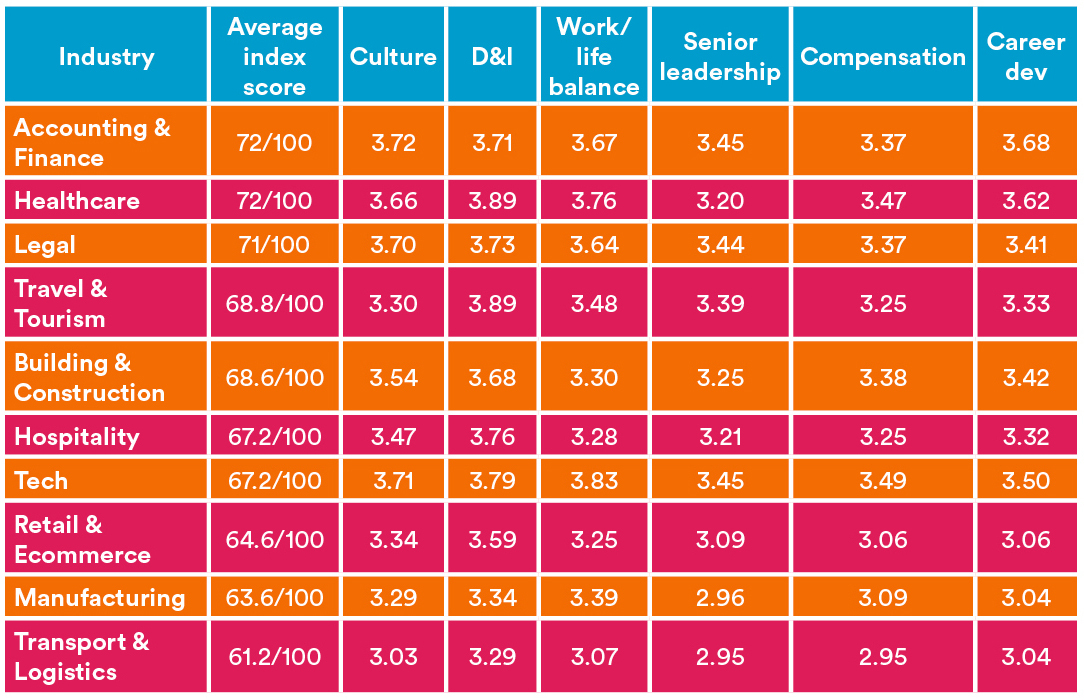
Which industries have the most satisfied workers revealed: The Career Happiness Index
In the wake of 2021, 'The Great Resignation' has left an indelible mark, garnering 646 million results on Google. Reports suggest that this phenomenon shows no signs of slowing down — in the second quarter of 2023, approximately 335,000 job-to-job resignations occurred in the United Kingdom. Adding to the complexity, the Office for National Statistics (ONS) recently reported that nearly 100,000 early retirees re-entered the workforce in the 12 months leading up to March 2023.
Amid this complex landscape, Stephen Lowe, an authority in retirement affairs at Just Group, notes that the escalating cost of living crisis is prompting individuals to reassess the concept of early retirement. This ongoing trend, often termed the "Great Unretirement," signifies a noteworthy paradigm shift, as individuals feel compelled to return to the workforce to bolster their income and pension.
The ONS' most recent data further emphasises this trend, in 2023 there were just over 1 million working-age people in early retirement, marking the lowest figure since 1994. The acceleration of this movement is undeniable, with 38,000 individuals opting to rejoin the workforce between January and March — a substantial increase compared to the 15,000 recorded between October and December of the preceding year.
Futures remains dedicated to revolutionising the approach to career support. Recognizing the pivotal role of holistic well-being in professional life, we proudly introduce the Career Happiness Index. The index, derived from data on Culture, Diversity, Work/Life Balance, Senior Leadership, Compensation, and Career Development from Glassdoor, offers a comprehensive perspective on career satisfaction across various industries.
Based on analysis of data from the UK's top 100 brands by turnover, we have unveiled the average index scores for each industry. These scores illuminate the perceived career happiness within different sectors*:

*Data recorded and accurate as of March 2024
Notably, Accounting & Finance and Healthcare lead the way, each boasting a solid score of 72, suggesting a high level of satisfaction within these industries. Legal follows closely with a commendable score of 71, showcasing contentment among professionals. All three industries seem to have a higher level of diversity and career development.
Rob Jones, Director at TCP Group, an accountancy firm based in the East Midlands shares his thoughts on why Accounting and Finance has taken the top spot:
“There has been a shift to the out of date "norm" over the last 5 years or so in Accountancy, in relation to the stereotype that the position is boring or nerdy. The fundamentals of accountancy have not changed dramatically, in that it still requires skill, intelligence and hard work, however I feel the relationship between accountants and clients has become closer, and as a result, more sociable.
“You could argue that the stereotype accountant is socially awkward, just sits behind a desk and crunches numbers, however in recent years we are seeing a change in personnel in the industry that is more outgoing, a more valued business partner and dare I say it, cool.”
Manufacturing and Transport & Logistics, while scoring slightly lower, still display a reasonable level of career satisfaction at 63.6 and 61.2 and it wouldn’t be unfair to say the lower scores could be down to lack of flexibility and work hours - but if you’re someone who thrives on a structured regime, this could be the perfect career move for you.
Amanda Payne, Director of Operations at The Futures Group has worked in careers for 22 years and is extremely passionate about enabling others to achieve more from their jobs. She reflects on the Career Happiness Index:
"I firmly believe that true success in a career is not necessarily about achieving professional milestones but finding genuine happiness in the work we do. As Director of Operations at The Futures Group, witnessing firsthand the transformative impact of our services on individuals' lives fills me with immense pride.
"The scores paint a vivid picture of perceived career happiness across diverse sectors. These figures provide valuable insights into the diverse landscape of professional contentment, allowing individuals to gauge their own career happiness against industry benchmarks.
“A fulfilling career is more than the tasks we perform; it's about creating an environment where individuals can thrive, grow, and find joy in their daily endeavours. The journey to career happiness is a collaborative approach, and at The Futures Group, we are dedicated to empowering people to not only achieve their career goals but to discover true happiness along the way."
Assessing your own career happiness
Now that you have an idea of how your industry fares in the Career Happiness Index, it's time to reflect on your own professional satisfaction.
Here's a simple guide to assess and improve your career happiness:
Self-reflection and identifying your priorities
Evaluate your current job satisfaction against the industry average. Identify aspects that contribute positively or negatively to your career happiness. Pinpoint the factors that matter most to you, be it work/life balance, career development opportunities, or a positive company culture.
Set goals and seek feedback
Establish short-term and long-term career goals. These goals should align with your priorities and contribute to a more fulfilling professional life.Regularly seek feedback from peers, mentors, or supervisors. Constructive feedback can provide insights into areas for improvement and highlight your strengths.
Continuous learning and networking
Stay relevant in your industry by investing in continuous learning and skill development. This not only enhances your professional growth but also contributes to career satisfaction. Build a strong professional network and seek mentorship. Engaging with experienced professionals can provide valuable guidance and open doors to new opportunities.
Practical advice for a balanced career
In addition to understanding your own job satisfaction, The Futures Group offers practical advice to help individuals achieve a more balanced and fulfilling career:
Embrace work/life balance
Striving to achieve balance between your professional and personal life can be easier said than done. Setting clear boundaries, efficiently managing your time, and prioritising self-care are essential steps in cultivating a balanced and fulfilling career. By recognizing the importance of a healthy work/life balance, you create an environment that allows both personal and professional aspects to thrive.
Advocate for diversity and inclusion
Actively contribute to fostering a positive workplace culture by becoming an advocate for diversity and inclusion. Embrace and champion diverse perspectives, as they not only enrich the work environment but also contribute to a more inclusive and satisfying workplace. By promoting diversity, you actively participate in creating a workplace that values and respects the unique contributions of every individual.
Negotiate fair compensation
Acknowledge your own worth and confidently engage in negotiations to secure fair compensation for your contributions. Feeling valued in terms of remuneration is a pivotal aspect of career happiness. By advocating for fair compensation, you not only recognize your professional worth but also contribute to a work environment where employees feel respected and appreciated.
Commit to continuous career development
Take proactive measures to steer your professional growth by actively seeking out opportunities for continuous career development. This could involve participating in relevant training programs, attending workshops, or pursuing advanced degrees. By committing to ongoing learning and development, you not only enhance your skill set but also contribute to your overall career satisfaction and advancement. Embrace the mindset of lifelong learning to stay relevant in a dynamic professional landscape.
As we unveil our Career Happiness Index, we invite you to assess and enhance your own career satisfaction. By understanding industry trends and implementing practical advice, you can navigate your career path with purpose and achieve a fulfilling professional life.
The journey to career happiness is a personal one, and with the right mindset and proactive approach, you can create a future that aligns with your aspirations.
If you feel you need a helping hand, fill out our form and start your future with us.
Methodology
The data collection methodology for the Career Happiness Index involved sourcing information on Culture, Diversity, Work/Life Balance, Senior Leadership, Compensation, and Career Development from Glassdoor.
Average index scores were then compiled for each industry based on data from the UK's top 100 brands by turnover.
More articles

National Careers service in East Midlands rated Outstanding by Ofsted
Futures for You - responsible for the National Careers Service across the East Midlands - has been rated Outstanding by Ofsted.
Read More